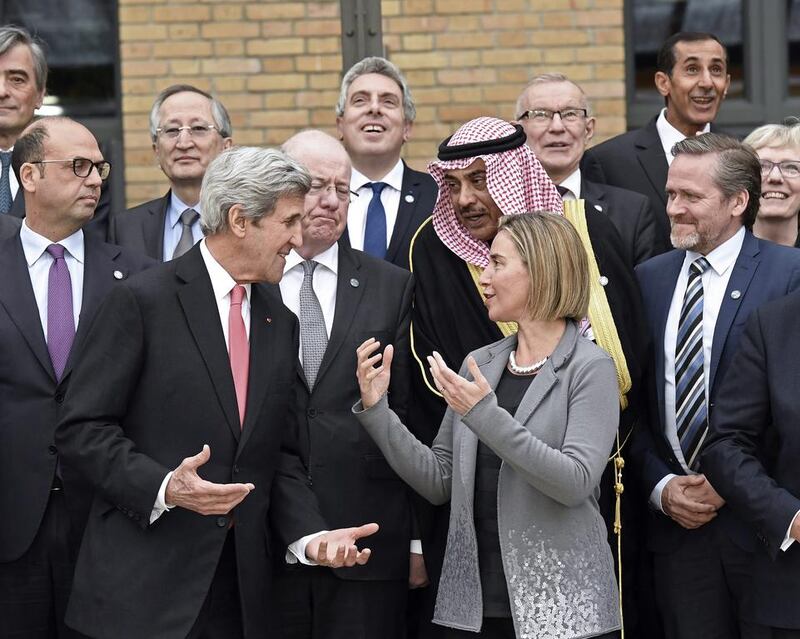PARIS // Some 70 countries on Sunday warned Israel and the Palestinians against “unilateral steps” on Jerusalem and urged both sides to commit to a two-state solution.
The final communique of the Middle East peace conference held in Paris shied away explicitly from criticising plans by US president-elect Donald Trump to move the American embassy to Jerusalem, and said a new conference would be held by year-end for interested parties.
But France warned that such a move will have “serious consequences”.
Neither Israel nor the Palestinians attended the conference, which Israeli prime minister Benjamin Netanyahu has dismissed as “futile”.
France called the gathering to reaffirm global support for a two-state solution to the seven-decade-old conflict, seen as increasingly elusive.
The Palestinians have warned that Mr Trump’s campaign pledge to move the US embassy to the contested city of Jerusalem could torpedo their chances of obtaining an independent state.
French foreign minister Jean-Marc Ayrault said the move would have “extremely serious consequences” and predicted the incoming US leader would find it impossible to implement.
“When you are president of the United States, you cannot take such a stubborn and such a unilateral view on this issue. You have to try to create the conditions for peace,” he told France 3 TV.
The Palestinians regard Israeli-annexed east Jerusalem as the capital of their future state, while Israel proclaims the entire city as its capital.
The status of the city is one of the thorniest issues in the conflict.
President Francois Hollande told the gathering that the prospect of two independent states coexisting side-by-side was “not the dream of yesterday’s system”.
“It remains the goal of the entire international community for the future,” Mr Hollande said.
Mr Netanyahu, who insists only direct talks with the Palestinians can bring peace, has dismissed the Paris meeting as “a last gasp of the past”.
On Sunday, he called it a futile exercise aimed at “imposing upon Israel conditions that are incompatible with our national needs”.
Both Mr Netanyahu and Palestinian president Mahmoud Abbas have been invited to meet with Mr Hollande to discuss the conclusions of the Paris talks.
Mr Abbas is expected to travel to Paris in the coming weeks but Mr Netanyahu has rejected the offer, French diplomats said.
The conference is mainly symbolic, but comes at a crucial juncture for the Middle East, five days before Mr Trump is sworn in as US president.
Mr Trump has said “there’s nobody more pro-Israeli than I am” and his choice for ambassador to Israel, David Friedman, is a hardliner who says he looks forward to working from “Israel’s eternal capital, Jerusalem”.
Israel, which is still seething over a critical UN resolution last month, fears the Paris meeting could produce measures hastily put to the Security Council before Mr Trump takes over.
The French have stressed they have no such plans.
US secretary of state John Kerry, who rebuked Israel recently over its settler activity, joined the Paris talks on his farewell tour, along with delegates from the UN, EU and Arab League.
A draft conference communique called on Israel and the Palestinians to reiterate their support for two states and to refrain from “unilateral steps that prejudge the outcome of final status negotiations”.
On Saturday, Mr Abbas warned tensions could boil over if the US embassy was relocated from Tel Aviv to Jerusalem.
“Any attempts at legitimising the illegal Israeli annexation of the city will destroy the prospects of any political process, bury the hopes for a two-state solution, and fuel extremism in our region, as well as worldwide,” he said.
Tensions have spiralled recently following a wave of Palestinian attacks and inflammatory rhetoric on both sides.
Israeli-Palestinian efforts have been at a standstill since a US-led initiative collapsed in April 2014.
* Reuters and Agence France-Presse





